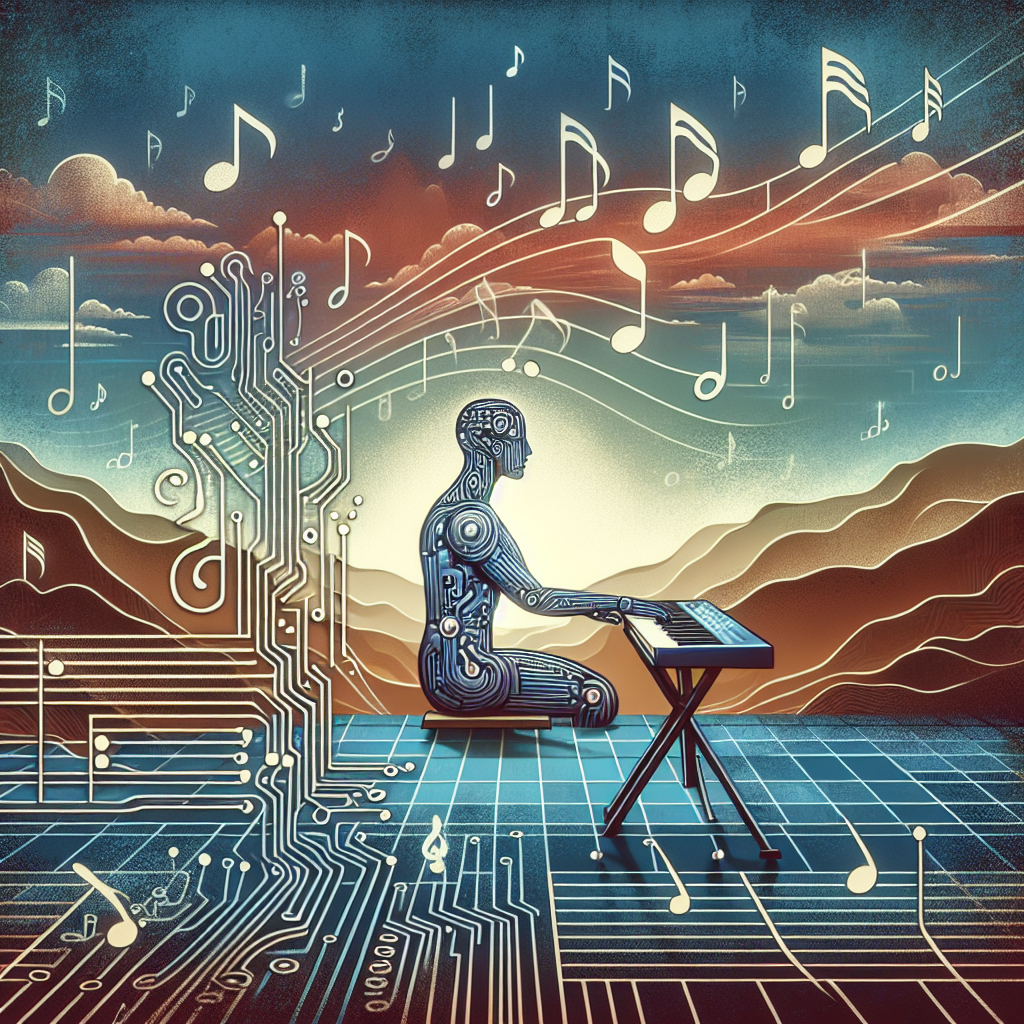Music composition has long been considered a deeply human art form, requiring creativity, emotion, and skill to create melodies and harmonies that resonate with audiences. However, in recent years, advances in artificial intelligence (AI) have begun to change the landscape of music composition, with generative AI algorithms now capable of creating original music compositions that rival those created by human composers. This technology, known as generative AI, is revolutionizing the way music is created, produced, and consumed, opening up new possibilities for musicians, producers, and listeners alike.
Generative AI works by using algorithms to analyze large amounts of data, such as existing music compositions, and then generating new music based on that analysis. These algorithms can learn patterns, structures, and styles from the data they are trained on, allowing them to create original compositions that sound like they were written by a human composer. This technology is being used in a variety of ways in the music industry, from helping composers and producers come up with new ideas and inspiration to creating entire albums of music autonomously.
One of the most well-known examples of generative AI in music composition is the use of neural networks to generate music. Neural networks are a type of AI algorithm that is inspired by the way the human brain works, with interconnected nodes that process information and learn from it over time. By training a neural network on a dataset of music compositions, it can learn to generate new music that is similar in style and structure to the original compositions. This technology has been used by artists such as Taryn Southern, who released an album of music entirely composed and produced with the help of AI.
Another example of generative AI in music composition is the use of algorithms to create personalized music for listeners. Streaming platforms like Spotify and Pandora are using AI algorithms to analyze users’ listening habits and preferences, and then generate personalized playlists and recommendations based on that data. This technology allows for a more tailored listening experience for users, with music that is catered to their individual tastes and preferences.
Generative AI is also being used to help musicians and producers come up with new ideas and inspiration for their compositions. By inputting a few notes or chords into an AI algorithm, it can generate full melodies, harmonies, and rhythms that can be used as the basis for a new song. This can help artists overcome creative blocks and explore new musical ideas that they may not have thought of on their own.
Overall, generative AI is changing the landscape of music composition in a number of ways, from creating new opportunities for artists to pushing the boundaries of what is possible in music creation. As this technology continues to evolve and improve, we can expect to see even more innovative and groundbreaking music compositions created with the help of AI.
FAQs:
Q: Can generative AI replace human composers?
A: While generative AI is capable of creating original music compositions, it is unlikely to completely replace human composers. AI algorithms lack the creativity, emotion, and intuition that human composers bring to their music, and there will always be a place for human artistry in the music industry. However, AI can be a valuable tool for composers and producers, helping them come up with new ideas and inspiration for their compositions.
Q: Is generative AI ethical in music composition?
A: The use of generative AI in music composition raises ethical questions about ownership, copyright, and authenticity. Artists and producers using AI algorithms to create music should be transparent about their use of the technology and give credit to the AI system if it plays a significant role in the composition. Additionally, there are concerns about the potential for AI to devalue the work of human composers and musicians, so it is important to consider these ethical implications when using generative AI in music.
Q: How is generative AI impacting the music industry?
A: Generative AI is revolutionizing the music industry in a number of ways, from creating new opportunities for artists and producers to changing the way music is consumed and produced. AI algorithms are being used to generate personalized playlists, assist with music composition, and even create entire albums autonomously. This technology is opening up new possibilities for musicians, producers, and listeners alike, and is reshaping the way music is created and experienced.

